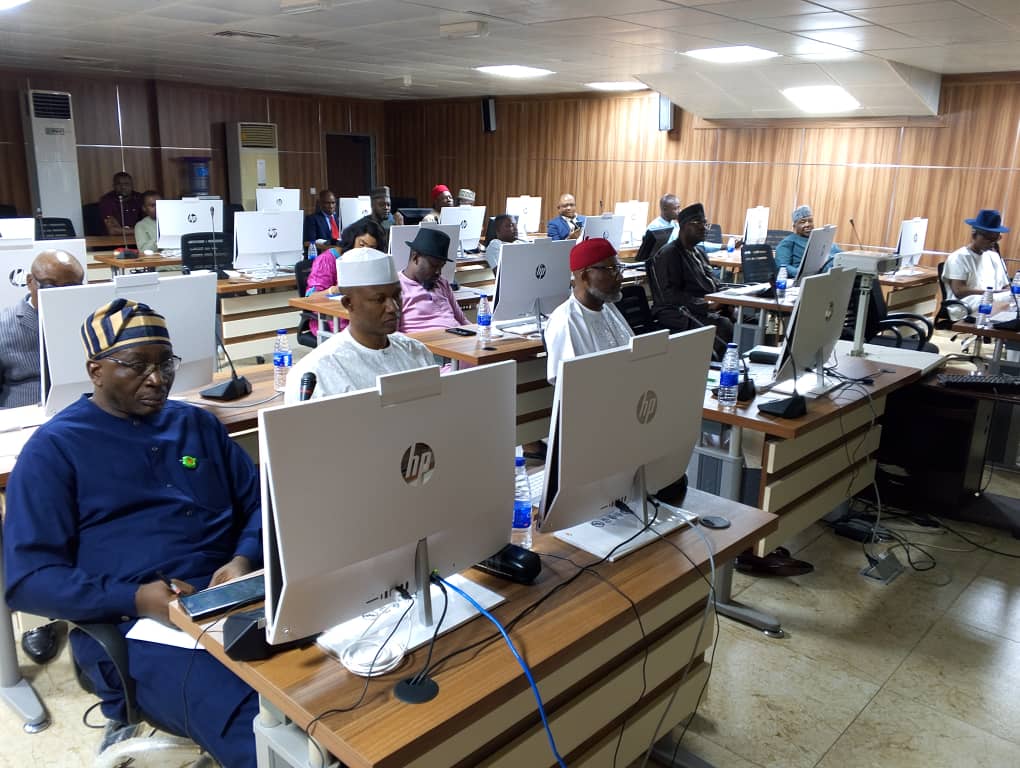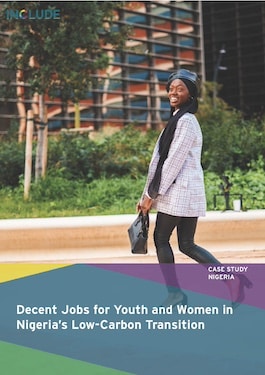
INCLUDE recently hosted a high-level symposium titled “Decent Jobs for Youth and Women in Nigeria’s Low-Carbon Transition: Insights from Nigeria,” which brought together lawmakers including a large array of members of the House committee on renewable energy, climate change and youth among others. Experts and other key policy stakeholders were also gracing the event to explore the intersection of renewable energy and inclusive job creation.
h
Key Takeaways
- Labor-Based Incentive Structures: The primary message from the symposium centered on the urgent need for labor-based incentives in the low-carbon transition. These incentives should be designed to holistically address the socioeconomic needs of Nigerian citizens, ensuring that the benefits of renewable energy adoption are widely shared across all strata of society. This approach would not only accelerate the transition but also provide meaningful employment opportunities and enhance social equity.
- Enabling Policy Frameworks: Complementary to labor incentives, the discussion highlighted the necessity of an enabling policy environment, particularly regarding fiscal tools such as tax incentives. Such measures are crucial to support the scalability of renewable energy solutions, making them accessible to both startups and individual consumers, thereby reducing reliance on the National Grid.
- Strategic Multi-Stakeholder Collaboration: The symposium reinforced the importance of cross-sectoral collaboration, particularly between lawmakers and technical experts. This partnership is vital for crafting policies that are not only comprehensive and informed but also capable of addressing the intricate challenges of a labor-driven low-carbon economy.
- Data-Driven Socioeconomic Strategies: Accurate data collection and analysis were identified as key to developing and implementing effective labor-based incentives. High-quality data is essential to inform policy decisions, measure socioeconomic impact, and ensure that the transition to a low-carbon economy is inclusive and equitable.
- Entrepreneurship and Empowerment: The discussions emphasized the role of entrepreneurship in driving the transition, particularly for youth and women. By embedding labor incentives within the entrepreneurial ecosystem, we can stimulate innovation, foster economic resilience, and ensure that the transition supports sustainable livelihoods.
- Bridging the Energy Poverty Gap through Public Awareness and Stakeholder Engagement: One of the most significant opportunities highlighted during the symposium was the potential to bridge the energy poverty gap through a labor-focused transition to renewable energy. This approach is not just about providing access to cleaner energy but also about creating socio-economic benefits that uplift marginalized communities. Raising awareness about the transformative potential of renewable energy is essential. By educating citizens—particularly those in marginalized and underserved areas—about the socio-economic opportunities that a labor-focused transition can offer, we can empower these communities to participate actively in the renewable energy sector. This participation is crucial for ensuring that the benefits of the transition are equitably distributed, leading to widespread engagement and reducing energy poverty.

We extend our gratitude to all the participants for their insightful contributions. At INCLUDE, we are committed to fostering inclusive development through evidence-based policymaking. The insights from this symposium will guide our continued efforts to support Nigeria’s transition to a low-carbon economy, ensuring that it benefits everyone, especially the youth and women.
